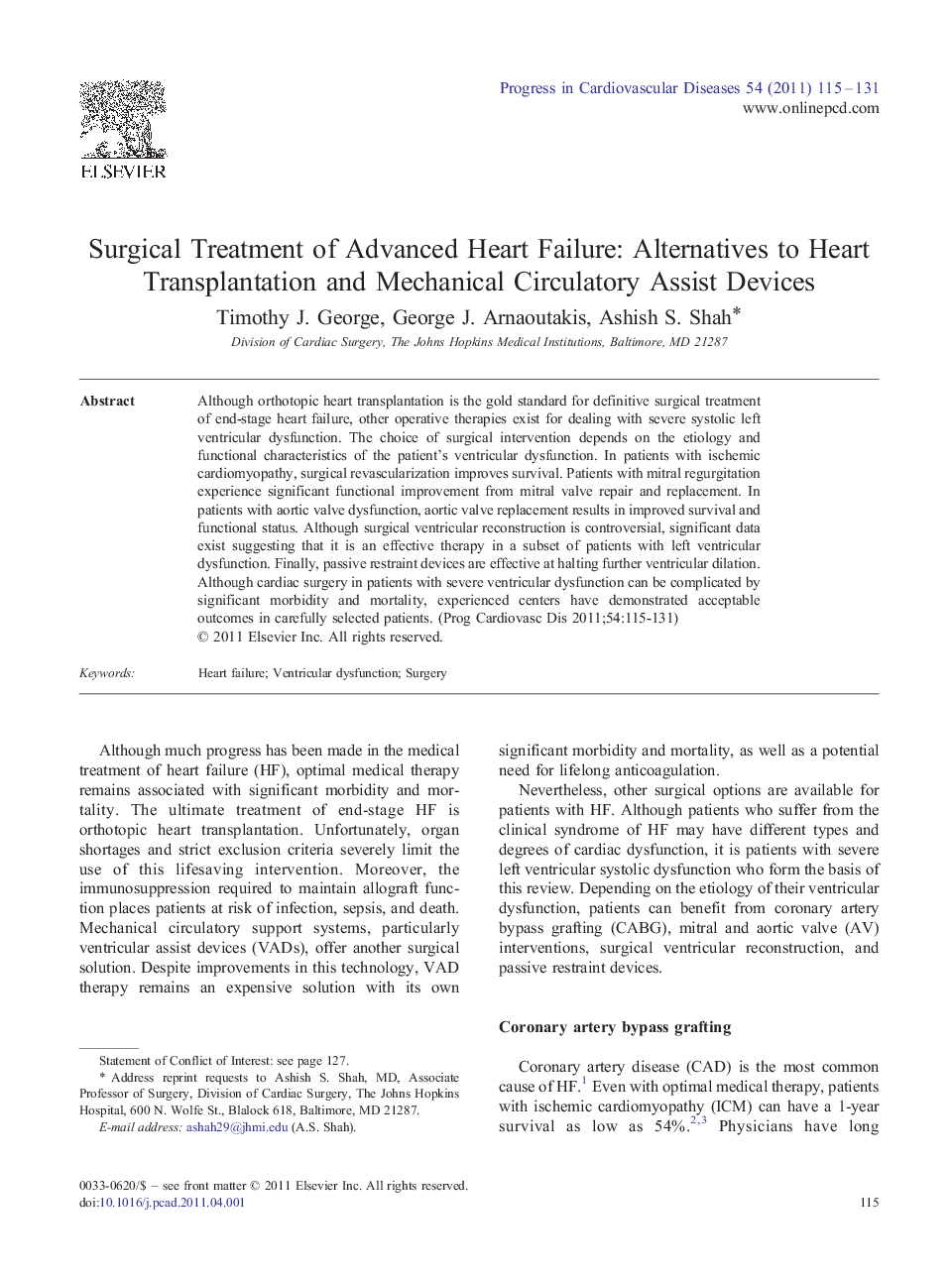| Article ID | Journal | Published Year | Pages | File Type |
|---|---|---|---|---|
| 3006686 | Progress in Cardiovascular Diseases | 2011 | 17 Pages |
Abstract
Although orthotopic heart transplantation is the gold standard for definitive surgical treatment of end-stage heart failure, other operative therapies exist for dealing with severe systolic left ventricular dysfunction. The choice of surgical intervention depends on the etiology and functional characteristics of the patient's ventricular dysfunction. In patients with ischemic cardiomyopathy, surgical revascularization improves survival. Patients with mitral regurgitation experience significant functional improvement from mitral valve repair and replacement. In patients with aortic valve dysfunction, aortic valve replacement results in improved survival and functional status. Although surgical ventricular reconstruction is controversial, significant data exist suggesting that it is an effective therapy in a subset of patients with left ventricular dysfunction. Finally, passive restraint devices are effective at halting further ventricular dilation. Although cardiac surgery in patients with severe ventricular dysfunction can be complicated by significant morbidity and mortality, experienced centers have demonstrated acceptable outcomes in carefully selected patients.
Keywords
PLVLVEDVIABPAVALCOSNYHAMVRLVEFICMcMRIDSE18-fluorodeoxyglucose positron emission tomographyFDG-PETDCMSVRTSAsPSASTAVILVESVIMyocardial infarctionAVRventricular dysfunctionNew York Heart Associationsurgical ventricular reconstructionSPECTleft ventriclecoronary artery diseasecoronary artery bypass graftingmitral valve repaircardiac magnetic resonance imagingAortic valve replacementAortic stenosissingle photon emission computed tomographyCABGLeft ventricular end-diastolic volumestroke volumeAortic valvemitral valveVentricular assist deviceLow cardiac output syndromeleft ventricular end-systolic volume indexCADSurgeryaortic valve areaaortic regurgitationheart failuremitral regurgitationpartial left ventriculectomyintraaortic balloon pumptranscatheter aortic valve implantationVADischemic cardiomyopathyDilated cardiomyopathyleft ventricular ejection fractionejection fractionSTICH
Related Topics
Health Sciences
Medicine and Dentistry
Cardiology and Cardiovascular Medicine
Authors
Timothy J. George, George J. Arnaoutakis, Ashish S. Shah,
